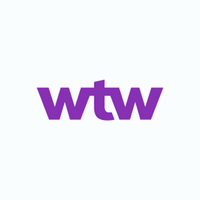9 ways to use benefits to create Generation Z appeal
Generation Z (Gen Z) has become a critical consideration for forward-thinking organisations when designing benefit programmes.
Accounting for 30% of the global population and predicted to comprise 27% of the workforce by 2025, it’s a demographic – those born between the late 1990s and the early 2000s – that organisations can ill-afford to neglect.
As competition to attract high calibre employees increases, progressive businesses are focusing on Gen Z’s requirements.
Below, we look at some of the key rewards and benefits businesses can offer that meet the health and benefit expectations of this highly discerning generation.
1. Diversity, equity and inclusion
For Gen Z, diversity, equity and inclusion (DE&I) is further reaching than for previous generations.
Gen Z’s DE&I concerns extend beyond ensuring equity and inclusion for under-represented groups. Authentic individual expression and the celebration of intersectional diversity, as well as broader differences in lifestyle, culture, political beliefs and cognitive diversity, are highly valued.
Businesses should, consequently, demonstrate continuous efforts to improve their DE&I profile, if they wish to meet Gen Z expectations.
Strategies for embedding a culture of DE&I include having representation in leadership teams, providing ally training, giving voice to employee resource groups and offering reverse mentoring programmes.
2. ESG is essential
Gen Z employees seek purpose in their careers and look for employers that share their values. They regard an employer’s commitment to environmental, social and governance (ESG) standards as particularly significant. They believe a sustainable employer is more likely to care for staff wellbeing.
An organisation that invests time and budget into developing a progressive, well-defined ESG strategy demonstrates the responsibility and integrity that Gen Z is drawn to.
Transparent data-led reporting can help satisfy well informed Gen Z employees that the company is making a real difference and not merely box ticking or greenwashing.
Introducing ESG-supportive employee benefits can help modernise a benefit programme and make it feel more relevant. Examples of such benefits include volunteering days, carbon offsetting schemes, recycled/refurbished technology options and charity giving.
3. Mental health matters
Gen Z has a greater awareness of mental health issues than any other population group and expects organisations to prioritise mental health benefits.
Virtual support such as telehealth services, online learning and digital resources are welcomed, while the option for in-person interactions with mental health first aiders or clinicians should also be made available.
Employee assistance programmes that provide confidential 24/7 access to counselling can contribute to this support structure. Employers could also consider private medical insurance, which includes mental health treatment.
4. Personalise technology
As digital natives, Gen Z employees have grown up in a world connected by social networks and their lives are immersed in mobile technology. As a result, they expect workplace and wellbeing technology to be personalised and up to date.
A study by Willis Towers Watson (WTW) found that post-millennial workers are more likely than older co-workers to use telemedicine: 41% of employees aged 18-24 said they’d prefer to use digital GPs, compared with just 16% of those aged 55 and over.
To help a corporate benefit programme resonate with Gen Z workers, employers could consider offering such tools and resources as fitness wearables, online advice videos and meditation and mood-monitoring apps.
5. Facilitate flexibility
A company offering flexible working will attract Gen Z, who attach great importance to work/life balance.
The ability to work from home also supports Gen Z’s investment in green issues, by reducing emissions caused by the daily commute.
6. Physical health programmes
Gen Z takes a holistic approach to managing physical wellbeing. They are more likely to be interested in health benefits that offer such things as chiropractic care, physiotherapy and other specialised treatments.
This demographic also has an appetite for health and fitness apps, and wearables that integrate health and wellness into their daily lives.
Expensive plans with benefits they are unlikely to use – and lack personalisation – are unlikely to garner interest.
7. Lifelong learning
Benefit programmes that include ample learning opportunities – both work-related and for employees’ personal interests – will appeal to Gen Z’s desire to learn and acquire new skills.
Training that aids professional development and increases scope for promotion, and time or financial allowances for employees to pursue further educational qualifications, are likely to have a high take-up.
8. Financial confidence
Student debt means financial stability is a priority for those entering work. Employers can help them improve their financial literacy by providing financial education as part of their benefits.
Workshops, seminars, one-to-one coaching sessions, videos and advisory literature can all help employees manage their money more responsibly. Financial health checks may also be offered.
9. Generate Gen Z appeal
Gen Z employees value simplicity and transparency and so employers should strive to provide benefits that are straightforward to access and easy to understand.
As this talent pool is keen for its ideas and opinions to be heard, it is important that rewards and benefits address its needs and priorities, and feel personalised and relevant.
If an organisation is to endure, prosper, and attract and retain talent, it is vital that its benefits are designed to meet the requirements and expectations of this incoming generation.
Supplied by REBA Associate Member, WTW
WTW is a leading global advisory, broking and solutions company.








